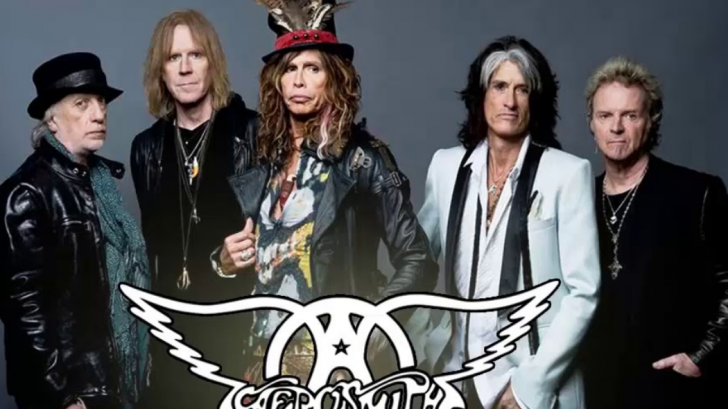The authentic architects of somehow “softening” hard rock and making it closer to any palate, one of the best known and most important rock bands in music history; The Boston Boys, Aerosmith.
The comparisons have always been odious, and in this case also unnecessary, but it has always been the temptation to compare them with the Rolling Stones themselves, and although there are many characteristics that both groups have in common, one of the most obvious is the little faces of their respective leaders and vocalists, each one has its own personality and, yes, spectacular music.
The group would take shape in 1971 and its initial composition would be formed by Joe Perry, Tom Hamilton, Joey Kramer, Ray Tabano and, of course, their frontman Steve Tyler, who in his previous experiences in minor groups had been the drummer of them and this time it was clear that he would be the undisputed vocalist. The truth is that the change was quite fortunate.
Today it is one of the most successful groups in the world, but, many years ago, its career was very close to going down the drain. It is the paradigm of a band that has had more than one life. Let’s see: at the end of the seventies they enjoyed enormous success in the United States (although in Europe they were not paid much attention) and that success led them to fall into a spiral of personal lack of control that led to the abandonment of some of its members and a rapid decline in popularity.
When they seemed doomed to languish and become a relic of the past, like so many other bands of their generation that had been great but new youngsters preferred to ignore, Aerosmith reformed, battled to regain their niche and finally, when rock became fashionable once again, they ended up becoming what they are now, one of the most popular groups not only in the country but in the entire planet.
Since then they have based their commercial success on promoting melodic songs, which in some cases have been good and in other cases they have been atrocious. But, on the other hand, they have never completely lost their essence.
As I said, live they still have power. But they are well aware that they have two types of audience to look out for. In fact, the repertoire of their concerts can vary considerably depending on which festival they perform in, even on the specific continent where they are, because in their country they tend to place more emphasis on older, more rock songs, while in Europe there are more songs new and melodic.
Although the truth is that they maintain that balance with skill, I suspect that many people, especially those who have not followed them closely and think they are producers of serial ballads, have missed some of the jewels of their past. In any case, they were an extraordinarily influential band and they justly wear the mark of legends.
In an interview, Aerosmith guitarist Joe Perry recalled how he began his songwriting adventure with Steven Tyler. “Steven and I shared an apartment for most of a year,” Perry said. “Our basic paradigm for writing is him playing drums and me playing guitar. He’s a really inventive drummer – that’s why his singing is so percussive. It takes him that extra length of time to write lyrics because he likes to use words that sound almost like a percussive kinda thing. He would play the drums and I’d play guitar, and he’d throw some weird backbeat in there, and I’d find a note to go with it, and we’d play back and forth like that.”
He continued: “We’d have a cassette player running and he would start singing along. That’s how that song [“S.O.S”] came together. We were set up in the living room with a little drum kit and a little amp, and definitely the melody and the flow for the song came out of that, that afternoon.”
However, I would say that instead of two there are three great stages in Aerosmith songwriting formula.
The first, the hardest rock, all 70 until the dissolution of the classical line-up.
The second, from Rock in a Hard Place -the album with Jimmy Crespo replacing Joe Perry- to Get a Grip. There the first commercial rebirth of Aerosmith is located and a progressive “commercialization” in the style of the band is appreciated, in the sense of making their music more accessible to a majority public and not necessarily rockers. But he manages to do it naturally, without losing his identity or being forced. A great balance between catchy songs and powerful guitars. It is a stage that has its best exponent in PUMP (1989) and begins to show signs of exhaustion in Get a Grip (1993).
In 1997 comes a Nine Lives that is more AOR than anything else, it marks a new evolution and a greater distance with its more veteran audience. But what changes everything is the ballad I dont wanna miss a thing (1998) which, already in its maturity, places the band at number 1 on the charts almost all over the planet.
That’s when Tyler loses the oremus again and Aerosmith the north. The group’s music is becoming more and more standardized by trying to repeat the success of the Armaggeddon ballad and producing, at best, irregular records.
If you remember when in the early 90’s Aerosmith was said to be “the band that doesn’t have a single bad record in their entire history.”

